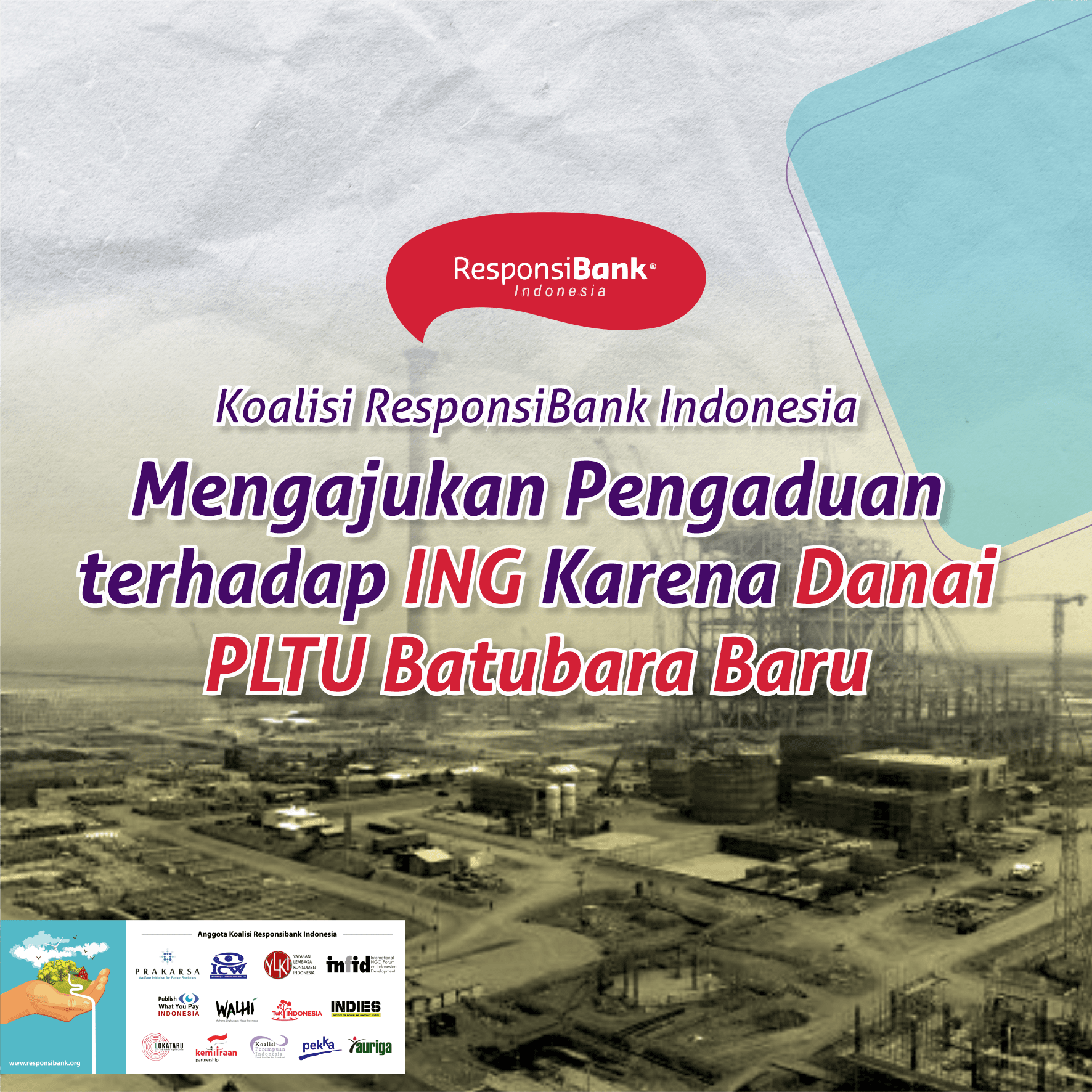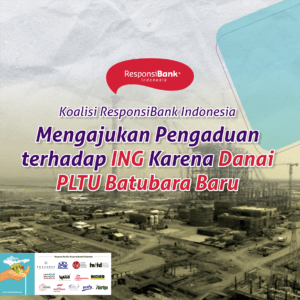28 July 2023 4 menit
Press Release – ResponsiBank Indonesia Coalition

ResponsiBank Indonesia Coalition Assesses
Implementation Commitments of Sustainable Finance
in Indonesian Banking Remains Low

“The financial sector plays an important role in supporting sustainable financing, for this reason, it is time for financial institutions to have written and explicit policies related to financing commitments made. Furthermore, the role of OJK here is very important, so OJK also needs to develop incentive and disincentive schemes to attract banks to implement a green taxonomy,” concluded Maftuchan.
Dwi Sawung, WALHI’s infrastructure and spatial planning campaigner added, “The new bank’s sustainability report shows emission reductions from its operational activities, yet shows more clearly how much bank financing is for sectors that have high emissions such as coal, fossil power plants, and plantations that clear forests. The reduction plan or when to stop financing dirty energy that causes climate change is also not clear. From this, it can be seen that the banking commitment to climate change is still weak.”
Furthermore, Maftuchan also stated that the theme of financial inclusion and consumer protection received the highest average score in the assessment. Banks in Indonesia still tend to focus on increasing financial inclusion through digitalization and providing bankless financial services. On the other hand, when it comes to human rights and gender equality, many banks continue to rank near the bottom.
Banking commitments related to respect for human rights (HAM) and anti-discrimination have not increase significantly. Concerning compliance with human rights, only HSBC, CIMB Niaga, and BCA have demonstrated a commitment to comply with human rights through their policies. However, in this 2022 ranking, Bank BNI, Mandiri, Danamon, BJB, and Permata Bank do not yet have policies related to compliance with human rights principles.
The hope is that banks will have written and explicit policies committing to more responsible financing by setting criteria, safeguarding, and due diligence for loans to high-risk economic sectors. Banks must also need to accelerate green sector financing to support the implementation of a green taxonomy and contribute to the improvement of the environment and people’s welfare.
TuK Indonesia said that banking practices in Indonesia are still far from prudent. This is demonstrated by the discovery of 213 oil palm plantation business units planted in forest areas in Central Kalimantan Province in accordance with the Decree of the Ministry of Forestry and Environment Phase XI Number 196/2023 concerning business activities established in forest areas without forestry permits. These companies are linked to various groups of large-scale plantation companies, many of which have access to bank financing facilities. Furthermore, based on data from the government of Central Kalimantan, only 71 of the 213 companies in the plantation sector have permits, while remaining 142 companies are unlicensed. This findinghighlights the fact that banks are still failing to conduct a more comprehensive assessment of financing for the oil palm plantation industry, which endangers to Indonesia’s forests.
The Financial Services Authority, as an institution that regulates banking, can accelerate the implementation of sustainable finance and green financing by implementing a mandatory green taxonomy. OJK also needs to develop incentive and disincentive schemes to attract banks. Furthermore, to ensure the implementation of a green taxonomy, a task force consisting of all stakeholders, including CSOs and the private sector, is needed.
“OJK must strengthen supervision, particularly by daring to target banks that continue to finance companies that have planted palm oil in forest areas. Of course, if this supervision is not carried out, it will create a reputation risk impact on the bank itself. Second, OJK need to immediately establish a multi-stakeholder sustainable finance task force, prioritizing the participation and input of various stakeholders who have previously been underrepresented but have been negatively impacted by the exploitation of natural resources. Third, the government, particularly the Ministry of Environment and Forestry, can take legal action if palm oil plantations are discovered in aforest area,” said Linda Rosalina, Executive Director of TuK Indonesia.
A complete report regarding Bank Ratings can be downloaded here:
contact person:
Dwi Rahayu Ningrum ([email protected]; 085212696987)
#TuKIndonesia #WALHI
#HSBC #CIMB #BCA
#BNI #Mandiri #Danamon #BJB #PermataBank
Baca Juga : MUFG – KOALISI MASYARAKAT SIPIL MENUNTUT BANK MUFG DAN DANAMON
This post is also available in: Indonesian
